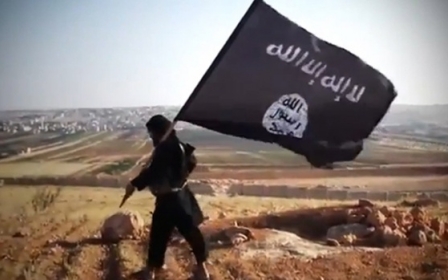Islamic State's income dropped 30 percent with loss of territory, report says

Islamic State (IS) group revenue has dropped about 30 percent since last year, forcing the group to introduce a range of new taxes including a levy on repairing satellite dishes, a research group said on Monday.
"In mid-2015, the Islamic State's overall monthly revenue was around $80 million," said Ludovico Carlino, senior analyst at IHS, which issues regular reports on IS-controlled territory.
"As of March 2016, the Islamic State's monthly revenue dropped to $56 million," Carlino said.
An IHS report also said oil production in areas controlled by IS had declined to 21,000 barrels per day from 33,000 barrels per day before.
This was mostly because of air strikes by the US-led coalition and Russia, although IHS said the decline may be only an "interruption of production" as IS has been able to repair infrastructure quickly.
The report said about 50 percent of IS revenue come from taxation and confiscation of businesses and property, with 43 percent coming from oil.
The remainder is made up of drug smuggling, the sale of electricity and donations, the report said.
"The Islamic State is still a force in the region but this drop in revenue is a significant figure and will increase the challenge for the group to run its territory in the long term," Carlino said.
IHS said the IS group had lost about 22 percent of its territory in the past 15 months and now ruled over six million instead of nine million people.
This meant the tax base for IS had become smaller.
"Our research has found that the Islamic State is increasing taxes on basic services and coming up with new ways to get money from the population.
"These taxes include tolls for truck drivers, fees for anyone installing new or repairing broken satellite dishes, and 'exit fees' for anyone trying to leave a city," Carlino said.
Fines for not being able to answer questions on the Quran correctly have also been introduced and IS is also taking cash as an alternative to corporal punishment penalties, IHS said.
Since the Syrian conflict erupted in 2011, half of the country's population has been displaced -- including five million who have fled to neighbouring states.
More than 270,000 people have been killed.
A truce brokered by Russia and the United States in February excludes the fight against the Islamic State group or Al-Qaeda's affiliate in Syria.
New MEE newsletter: Jerusalem Dispatch
Sign up to get the latest insights and analysis on Israel-Palestine, alongside Turkey Unpacked and other MEE newsletters
Middle East Eye delivers independent and unrivalled coverage and analysis of the Middle East, North Africa and beyond. To learn more about republishing this content and the associated fees, please fill out this form. More about MEE can be found here.




